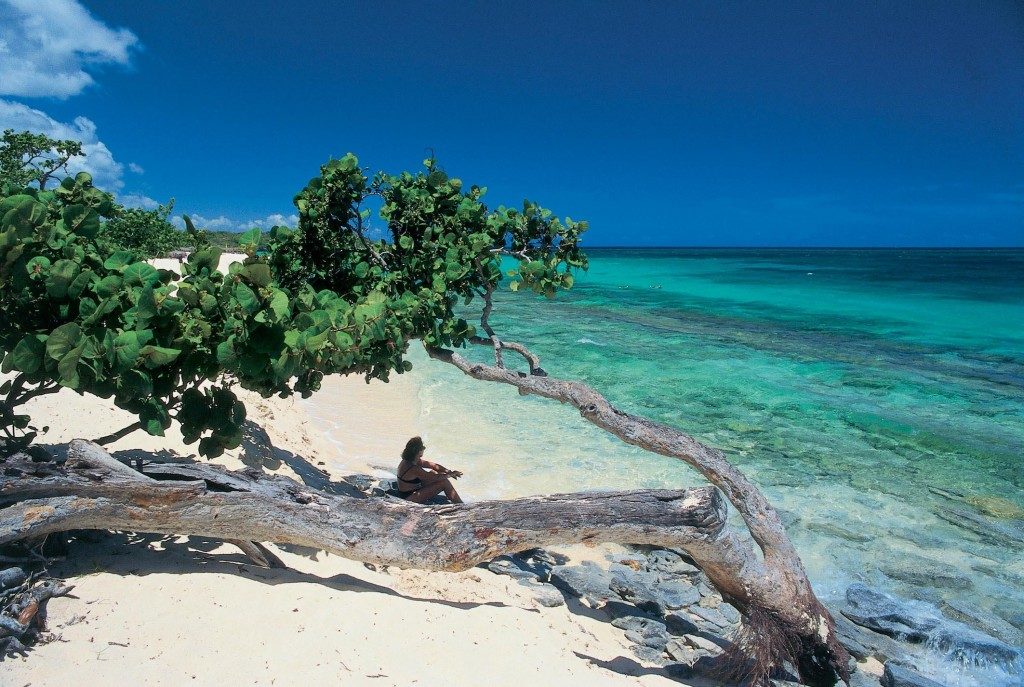![]() A phrase of singular significance and popular.
A phrase of singular significance and popular.
The One does not have of Congo has of Carabalí
“and your grandmother, where is she?”
Cuba was one of the first colonies where African slaves, came to be used as replacement labour force by the early extinction of the indigenous population at the hands of the Spanish colonizers.
Since the end of the 16TH century until the beginning of the 17TH, is considered the stage of introduction of blacks from Africa in Cuba, since 1517, King Carlos I of Spain, signed the permit authorizing the cruel process.
The nascent country came Mandingo, Yolofes, Fulaces; Gangaes, Longobaes, Mani, Qaisi, mines, Lucumies and Suamos, as well as Bibi, Bricamos, Motembos, Musundis, Mombasas, Sacuaes, Congos and Hawkfish, among other African ethnic groups.
The contribution of those Nations and tribes in the training of our people and their culture is crucial, from the mixture of these men and women with the trunk created by Iberian, Castilian, Andalusian, Galician, Catalan and Basque.
Luis Mariano Carbonell-
“And your Granny, where is she?”
These in turn joined with Taino and siboneyes, original inhabitants of the largest island in the West Indies and then with Yucatecan, Chinese and other many emigrants, and thus arose the popular unity to forge a new nation.
Cuba says to which tries to hide their offspring “that have no Congo, here has Carabali,” an expression well justified if we take into account the African roots of the current Cuban nationality.
The congos were strong, very corpulent, benbones and pure pass, while the Hawkfish who came from farther south almost glued to where today is South Africa, had fine features, slender bodies and walk proud and elegant.
Both Nations reached near-absolute predominance in the country and the phrase in question, of deep popular roots, meaning that everyone in Cuba or almost everyone have something black in their families, either from Congo or Carabali.
Agencies / C’Jaronu/Internet Photos/You Tube/Arnold Varona/TheCubanHistory.com
THE CUBAN HISTORY, HOLLYWOOD.
![]() EL QUE NO TIENE DE CONGO TIENE DE CARABALÍ.
EL QUE NO TIENE DE CONGO TIENE DE CARABALÍ.
Una frase de singular significación y arraigo popular.
el que no tiene de congo tiene de carabalí
“¿y tu abuela dónde está?”
Cuba fue una de las primeras colonias a donde llegaron los esclavos africanos, para utilizarlos como fuerza de trabajo de replazo por la temprana extinción de la población indígena a manos de los colonizadores españoles.
Desde finales del siglo XVI hasta principios del XVII, se considera la etapa de introducción de negros procedentes de África en Cuba, desde que en 1517, el rey Carlos I de España, firma el permiso que autoriza el cruel proceso.
Al naciente país vinieron Mandingas, Yolofes, Fulaces; Gangaes, Longobáes, Maní, Quisí, Minas, Lucumíes y Suamos, así como Bibí, Brícamos, Motembos, Musundis, Mombasas, Sacuaes, Congos y Carabalíes, entre otras etnias africanas.
La contribución de esas naciones y tribus en la formación de nuestro pueblo y de su cultura es decisiva, a partir de la mezcla de esos hombres y mujeres con el tronco creado por ibéricos, castellanos, andaluces, gallegos, catalanes y vascos.
Luis Mariano Carbonell.
“Y Tu Abuela dónde está?
Estos a su vez se juntaron con taínos y siboneyes, originales habitantes de la mayor isla de las Antillas y después con yucatecos, chinos y otros muchos emigrantes, y así surgió la unidad popular para forjar una nueva nación.
En Cuba se dice al que trata de ocultar sus descendencia “aquí el que no tiene de congo, tiene de carabalí”, en una expresión bien justificada si tenemos en cuenta las raíces africanas de la actual nacionalidad cubana.
Los congos eran fuertes, muy corpulentos, benbones y de pura pasa, mientras los carabalíes que llegaron de más al sur casi pegados a donde hoy es Sudáfrica, tenía finas facciones, de cuerpos esbeltos y de andar elegante y altanero.
Ambos pueblos alcanzaron predominio casi absoluto en el país y la frase en cuestión, de profundo arraigo popular, quiere decir que todos en Cuba o casi todos tienen algo de negro en sus familias, o bien de Congo o de Carabalí.
Agencies/C’Jaronu/Internet Photos/You Tube/Arnoldo Varona/TheCubanHistory.com
THE CUBAN HISTORY, HOLLYWOOD.






